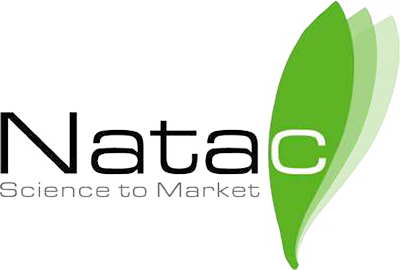Last week, Natac kicked off the implementation of SUSTAINEXT, marking the beginning of a groundbreaking venture. Natac welcomed its partners from across Europe to their facilities in Hervás, Spain, for a two-day meeting.
Together, a consortium of 21 stakeholders are set to breathe life into SUSTAINEXT, the flagship project boasting a budget of €22 million, with a grant of €14 million from the Circular Bio-based Europe Joint Undertaking (CBE JU). The project's mission is to revolutionise the botanical extracts industry through a unique model that can subsequently be replicated by the European bio-based sector.
This flagship endeavor, the 14th of its kind in Europe, will be the inaugural project of its category to be established in Spain. Over the course of 54 months, the 21 partners will collaborate to achieve the established objectives.
As a result of the SUSTAINEXT project, Natac will solidify its position as the most competitive and sustainable botanical extract company in the global industry. The primary objective is the resource-efficient utilisation through the implementation of a versatile, multi-product NetZero Carbon digital processing facility with a capacity of 20,000 metric tons.
The model is based on the DYANA concept, an analytical, dynamic, and intelligent extract factory that seamlessly integrates the entire supply chain from raw materials to end-users, enabling cascading valorisation of the feedstock. Batch-optimised based on the initial feedstock composition, it delivers maximum value with twin goals of zero waste and zero emissions.
SUSTAINEXT will be industrially implemented using six sustainable and locally sourced European feedstocks. Three medicinal and aromatic crops (rosemary, lemon verbena, and chamomile) will be cultivated in Extremadura, in abandoned tobacco fields, as a shift towards healthier crops. These crops will also be grown in fields with solar panels, optimising land use.
Additionally, it will demonstrate how botanical material recycling presents an opportunity to breathe new life into underutilised biological materials, utilising three agro-industrial byproducts (olive, artichoke/thistle, and pomegranate).
The botanical extracts sector is a thriving market with immense potential for technological advancement through the utilisation of new concepts that SUSTAINEXT will develop. These advancements will propel the industry towards an integrated, dynamic, environmentally friendly, and cascading model, with the ambition of achieving zero pollution and zero carbon emissions.
There is a clear business opportunity with a remarkably high market potential to implement a large-scale disruptive industrial model that enables the production of plant-based ingredients, while meeting the three key market drivers: cost competitiveness, guaranteed quality/traceability, and production sustainability. The SUSTAINEXT project will enable Natac to:
Generate socio-economic benefits in Extremadura
This Spanish region with a strong agricultural and livestock tradition, located in the southwest of the Iberian Peninsula, is currently facing several challenges. This presents a key opportunity to unlock new value chains in the region, through the utilisation of selected medicinal and aromatic plants (rosemary, chamomile, and lemon verbena), as well as olive, artichoke, and pomegranate organic material, which will generate new business opportunities and employment, both directly and indirectly. Natac, in the SUSTAINEXT framework, aims to actively participate and have a positive impact in addressing the region's challenges and seeking solutions.
Establish new alternatives to the tobacco plant industry
98% of tobacco cultivation in Spain takes place in Extremadura, encompassing a total of 8,664 hectares. Presently, this industry is seeking fresh alternatives that enhance its economic viability and garner greater social acceptance through the cultivation of healthier crops. This is where medicinal and aromatic plants, which Natac employs to produce its extracts, come into play, offering a viable and profitable opportunity.
Shift from photovoltaic to agri-voltaic solar energy
Extremadura stands as the Spanish region with the highest installed capacity of photovoltaic solar energy, intensifying the competition for land usage and resulting in increased carbon emissions due to land use change. Agri-power has emerged as a sustainable model, effectively combining the production of clean and affordable electricity with agricultural production.
Valorise agro-industrial organic material
This represents one of the greatest challenges for the region of Extremadura, ranking fifth in Spain in terms of agro-industrial organic material production, with an annual output of 6,800 tonnes. Currently, these resources are underutilised raw materials with significant potential for the development of new healthy ingredients.
Antonio Delgado, CEO of Natac, said: "The SUSTAINEXT project solidifies Natac's long-standing strategy, which was initiated in 2010, to embrace the circular bioeconomy as a sustainable business model. Our mission has remained steadfast: to transfer scientific knowledge into industrially viable and sustainable projects that generate value and enhance people's lives."
Nicoló Giacomuzzi-Moore, CBE JU Executive Director ad interim, said: "The project will put in place a sustainable and efficient bioeconomy business model based on zero-waste and zero-pollution processes integrated with renewable energy. Hervás will set a new standard in sustainable progress with an innovative and first-of-its-kind biorefinery. I hope their example will ignite a paradigm shift that empowers regions and sectors to embrace the circular bio-based industries."

